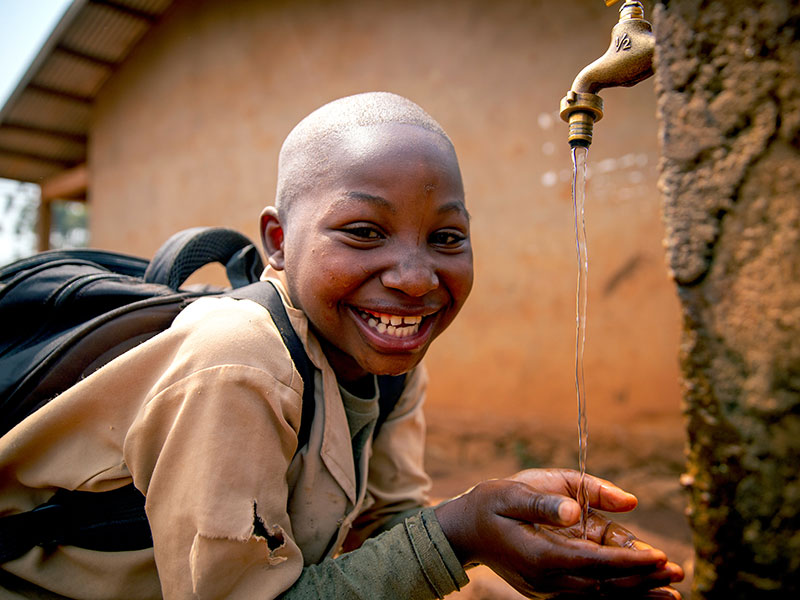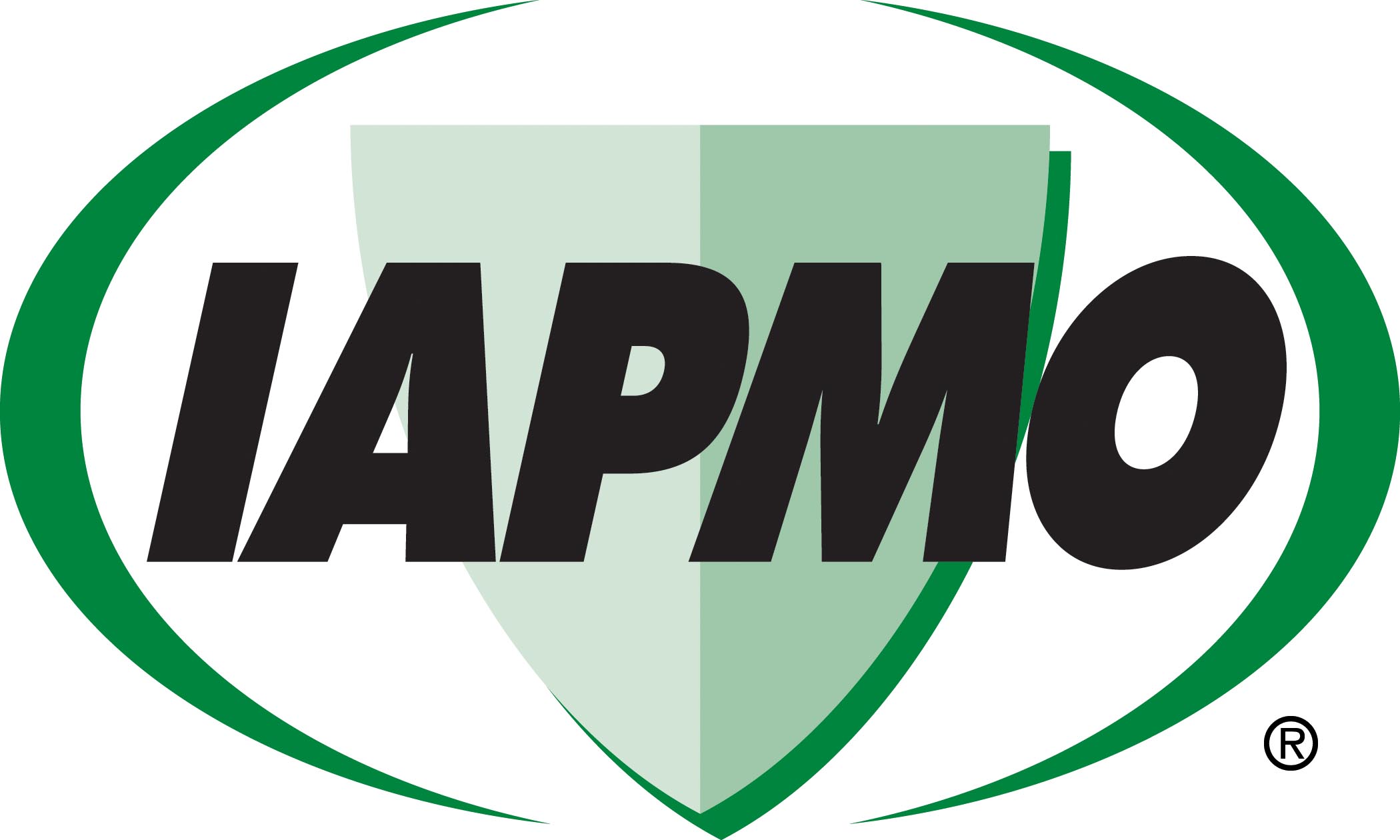

CALLIE LOWERY
MERCER UNIVERSITY | MACON, GEORGIA
RUNNER-UP 2022 SCHOLARSHIP ESSAY COMPETITION
As I sat on the other side of the computer screen, I watched this brave woman share her experiences living in Niger, West Africa, and how she endured the everyday journey of traveling miles to get to the nearest water hole. She explained how she would wake up with her mother before dawn to try and get to the nearest water hole before the water ran out. During the journey to get water, she mentioned how many women and young girls would get assaulted. Furthermore, there was no guarantee there would be any water left; and if there was, it was oftentimes contaminated, which would make many people ill. I remember sitting there listening to her story and seeing a glass of water right next to me. It was easy for me to walk 20 steps to have access to clean water, but the majority around the world do not have that luxury. During my time as a Wells Bring Hope Ambassador, I have learned what a significant impact clean water has on education, health, economies, and overall quality of life.
In the spring of 2020, I heard about an eight-week ambassador program for a non-profit organization called Wells Bring Hope. Over the next two months, I and 20 other students from around the country learned about the first-hand experiences of those who lived, visited, and drilled wells in Niger. The first factor of the program we studied was how water has a direct impact on education. Here in the United States, everyone has equal access to an education; however, in a developing nation like Niger, this is not the case. Around the age of 7, young girls would be pulled out of school to help their mothers do the daily chores like fetching water, maintaining the home, and cooking the meals. When fetching the water, the women and young girls would leave before dawn to have the best chance of accessing water. However, there was no chance that there would be any water left and if there was, it was often contaminated. Because of the lengthy time spent on household activities and being unenrolled from school, the majority of the women and girls do not know how to read or write. When drilling wells in these desolate communities, Wells Bring Hope allows these young girls to have access to education.
According to the Centers for Disease Control and Prevention, “The presence of contaminants in water can lead to adverse health effects, including gastrointestinal illness, reproductive problems, and neurological disorders.” These health issues are only a few of the harsh side effects of drinking contaminated water. The article further mentions how people with compromised immunities, like pregnant women, children, infants, and the elderly are more susceptible to these waterborne diseases. In countries like Niger where safe drinking water is not accessible, ailments such as River Blindness and death ensue. Additionally, in Niger, the leading cause of death in children under the age of five is caused by contaminated water and poor sanitation practices. With numerous health concerns, clean water is a necessity for everyone around the world. However, in many developing nations, there is clean water in the aquifer, but the citizens do not have access to it. Wells Bring Hope recognized this problem and thus began drilling wells. However, providing clean water is only part of the solution. One way to ensure the groundwater does not get contaminated further is by teaching Nigerians about public health. Wells Bring Hope does this by building latrines to eradicate the practice of open defecation — which is often directly associated with polluted water. Once public safety practices are established and a clean aquifer is accessible, various illnesses and death rates will decline.
Oftentimes in countries where sterile water is not abundant, the economy is not good either. A report recorded by The World Bank, mentions “…that a lack of clean water limits economic growth by one-third.” One of the main sources of income for developing nations and economically secure countries alike is agriculture. When crops come into contact with unclean water, the crops then become contaminated, as well. As these unsafe crops are being sold, many individuals become sick and may even die. Furthermore, people will be less likely to return to the market where the food made them sick. However, these countries do not have the funds to buy products outside of their nation, so the cycle is repeated. When wells are drilled and a clean aquifer is established, the water increases the nutritional value of fruits and vegetables; therefore, causing more people to buy the products and increasing the economy. Additionally, Wells Bring Hope helps women create a business to help their husbands pay the bills and establish savings for times of need. Establishing small businesses in developing countries helps boost the economy and leads to a better life. Although clean water directly influences education, health, and the economy, it also increases a person’s quality of life. One of the social changes that have come from clean water is the ridding of child marriages. As soon as young girls in Niger, and many other countries, begin to menstruate, they are forced to marry and begin having children. This social practice of child marriages is extremely harmful as young girls are more likely to experience physical and sexual violence, dangerous complications in pregnancy and childbirth, contracting diseases like HIV or AIDS, and domestic violence (“Marriage”). When wells are drilled, these young girls can stay in school, get an education, start a small business, and become successful young women with the choice of when and whom to marry. This is one of many reasons why having access to clean water changes lives.
Throughout my time as a Wells Bring Hope Ambassador, I have seen how something as widely underappreciated as water can change people’s lives indefinitely in education, health, economy, and quality of life. Although this essay and Wells Bring Hope’s mission centers around Niger, West Africa, there are many other places around the world where clean water is inaccessible. Some locations include Native American Reservations in the United States and Canada, rivers in India, and where pollution is high like Mexico. The topic of clean water is not just about accessibility; it is also a conversation about women’s rights, education, social practices, and economic safety. Contaminated water is arguably the largest pandemic affecting the world. Once clean water and proper sanitation are available worldwide, everyone will have a better opportunity to receive an education, have small businesses, have a longer life expectancy, and have a better quality of life.
ABOUT THE ESSAY COMPETITION
More than a decade ago, IAPMO’s Board of Directors recognized how important it is to encourage the next generation to become active in our industry. In this industry are engineers who design the system, those who install and maintain it, others who manufacture products within that system, and those who inspect it. Although there are tried and true ways of doing this, innovation plays an important part in making sure new technologies and ideas are considered.
Introducing students to our important work is vital, and the essay competition is just one way IWSH is doing this. It’s been through the essay scholarship competition that students around the world have learned about IWSH and shared their innovative ideas with IAPMO and the foundation.
The IWSH Essay Competition was administered for its 12th year in 2022 and continues to gain exposure globally. The number of entries once again eclipsed the previous record set the preceding year. And for the first time, using a numerical scoring method, the essay committee members identified a first-place winner and three runners-up!
This year’s question asked students: “How would the world be different if every human had access to clean drinking water and safe sanitation?”
Essays presented broad societal changes, gender specific issues and everything in between — in their entirety, the essays painted quite a picture of the vast influence clean water and safe sanitation have on life across the globe. We look forward to your being able to read the winners in this and upcoming issues of Official.
The three writers selected — three $1,000 runners up and $2,000 first-place winner — are:
First Place: Chantal Cheung, Queen’s University, Ontario, Canada
Runners-Up: Sofia Lang, McGill University, Alberta, Canada; Callie Lowery, Mercer University, Macon, Georgia; Wyatt Snyder, University of Indiana, Bloomington, Indiana
Each of the winning essays will be published in Official magazine over several issues this year.
Congratulations to all of our winners!
IAPMO wishes to thank everybody who submitted an entry and raised the level of this competition to something truly exceptional.

IAPMO
IAPMO develops and publishes the Uniform Plumbing Code®,the most widely recognized code of practice used by the plumbing industry worldwide; Uniform Mechanical Code®; Uniform Swimming Pool, Spa and Hot Tub Code®; and Uniform Solar Energy, Hydronics and Geothermal Code™ — the only plumbing, mechanical, solar energy and swimming pool codes designated by ANSI as American National Standards — and the Water Efficiency Standard (WE-Stand)™. IAPMO works with government, contractors, labor force, and manufacturers to produce product standards, technical manuals, personnel certification/educational programs and additional resources in order to meet the ever-evolving demands of the industry in protecting public health and safety.
Last modified: May 8, 2024
